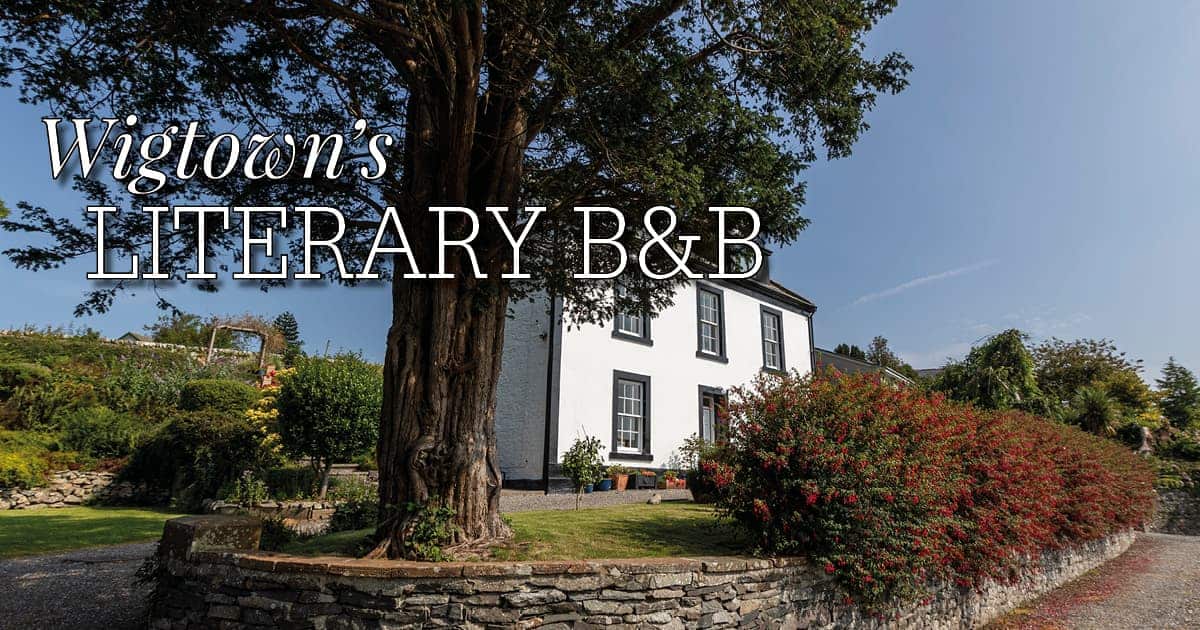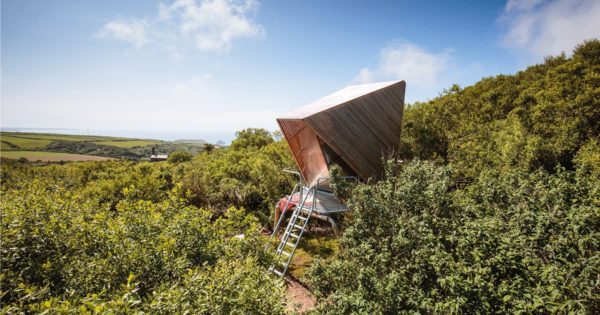
What I wish I had known before setting up my glamping business; An owner’s perspective.
There is no doubt that the best solutions always come from business owners who are one step ahead of you, but it can be difficult to gain access and ask those questions you are desperately seeking the answers to, especially in the world of unique hospitality and glamping.
As an adviser, I have helped kickstart thousands of businesses around the world through my Glamping Academy, which launched in 2010.
This has put me in the fortunate position of being able to ask hosts what they wish they’d known before they started and if they had to do it all again, what they would have done first to have the most impact fast.
Glamping and unique eco-retreats really began to take off in 2020, as the extra space and open air that this type of 5-star holiday provides suddenly became attractive for both the guest and host during the start of the health crisis.
This resulted in a number of accommodation providers, such as hotels and B&B owners, investigating their options with the hope they could do the same.
With a change in consumer behaviour due to the pandemic and the increasing buying power of millennials, we are now in a new era of dynamic travel with an exciting array of new structures on offer. Think treehouses, bubble tents, domes, yurts, and tipis, and you’ll get the idea.
Guests are seeking safe but highly instagrammable experiences with family and friends, which provide more than just a short-stay.
Of course, the host wants to offer all this and more without negatively impacting their own safety or ability to generate a good revenue and this is why the asset-light glamping business model is proving so popular.

Who is Sarah Riley?
Sarah Riley helps owners set up their glamping and unique holiday rentals.
She helps them to improve their occupancy using little-known techniques in this fast growing marketplace.
She is also the Founder of The Glamping Business Academy and host of the Industry Podcast.
Sarah supports one of the largest communities for glamping and unique holiday rental hosts.
The glamping business model is new to me, so is it worth me getting involved?
Many of us keep doing what we’ve always done as it feels scary to step outside of our comfort zone.
We hesitate to take chances and tackle change because… what if? The reality is that most benefits wait for us just outside our comfort zone because that’s when we really stretch ourselves and begin to step up a level.
This is what Cameron from Sierra Escapes Glamping told me when he shared his secret to overcoming this:
“Educate yourself, sure, but I think a degree of naivety can actually be somewhat useful.”
He also notes that many of the same people are still asking him questions about his business and procrastinating when he has already successfully moved into the expansion phase.
But it’s worth noting that not everyone explores the glamping business model for profitability and growth.
Some are more interested in what it can deliver as a lifestyle business.
Kerry from Circle of Desire said:
“If you’re setting up a Glamping business for a work-life balance and lifestyle change then my advice is stay small..it will be more enjoyable!”
Kate from Round The Woods Yurts told me she moved from a city life to set up her business with her husband and two young children. They have enjoyed many successes over the years and she recently admitted:
“I also didn’t know just how great it would be to work from home, together as a family, to spend so much time outdoors and so little time at a desk, to have the land support our family and give us an income as well as a bit of time for food growing and harvesting logs, helping us to become self sufficient.”
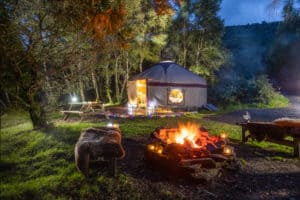
Is It Easy To Start A Unique Holiday Retreat?
Tim from The Farm Camp is a seasoned owner who tailors his offer to groups of guests celebrating special events whilst doing something unique in nature. They offer everything from re-wilding experiences to learning how to herd sheep. One of his regrets was how long it took for him to get started and how there was an easier way,
“Investing in expert advice saves a lot of time, effort, stress and money in the long term. Whilst I started on a bit of a shoestring and learnt a lot going the long and hard way round, getting some sound advice on key areas would have been so valuable.”
The advantage of starting an asset-light business like glamping is you don’t need bricks and mortar buildings. In fact, you may already have the land and permissions in place to get started quickly.
During the pandemic the UK Government allowed a variety of glamping facilities to be offered under the 28-day permitted development rights rule, which was extended to 56 days in some areas.
This enabled hosts to experiment with the business model before applying for more formal permissions and some found it life changing.
Katrina from Beautiful Bells told me that she didn’t realise her idea,
“…was going to grow from a hobby business to a full-time thing that I ended up leaving my career for!”
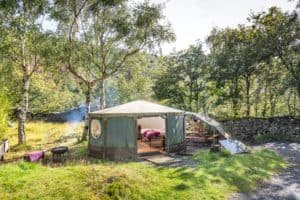
What is the secret to success in the glamping industry?
I often find myself explaining that there is absolutely no point in having wonderful facilities if no one knows they exist. This results in poor occupancy and a host who is heading for burnout. The owner of Campwell said:
“I thought it would be as easy as pitching some tents and watching the bookings roll in!”
This is not the case. Attracting guests needs a strategy that understands what works in the industry. This is especially true now that vacationers are booking their holidays in different ways, which for some, has resulted in gaps in the booking calendar where there were never gaps before.
This is a challenge experienced by many, including Claire from Thistledown Glamping, who gave some very wise advice:
“I wish I’d known just how long it takes to get a business like this going; I was not realistic at all! I also wish I’d researched the best places to advertise our Shepherd Huts before we were ready.”
However, Jane from Campden Yurts encourages her guests to book direct with her because,
“I like to have direct contact with those who book so that any unique requests or requirements can be discussed and sorted out ahead of time.”
An additional benefit for the host is not having to pay the expensive commission fees of a third-party booking site, so it’s a win for everyone.
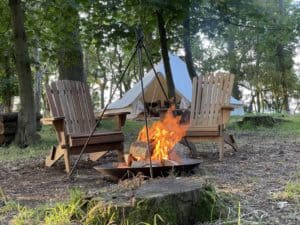
How can I get extra support for my glamping business?
There was a time when there were very few tools available to help hosts and absolutely no networking groups specific to the industry. This made it much more difficult to get ahead and is why I’ve built The Glamping Academy, a supportive business community, a library of knowledge and regular training for those needing extra help.
Working in a customer-focused and seasonal business can be exhausting, so it’s wise to set up your support systems for those moments when you need them most.
This is why members of my Start Up And Grow Club meet regularly. A gathering of friendly faces giving a collection of advice on a challenge being faced can be all it takes to help an owner leap ahead of the pack and achieve amazing results.
This is illustrated perfectly by Lisa of Oak Tree Meadow, when she said:
“I wish I’d known what hard work it is, but also how rewarding it is when your guests leave such positive reviews.”
There’s nothing quite like it!
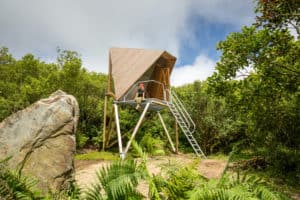
URLs
SOCIAL MEDIA
Readers of Luxury BNB Magazine can download a free copy of the book and accompanying video ‘What I Wish I’d Known Before Starting My Glamping Business – An Owners Perspective’, here: www.inspiredcourses.com/lux


